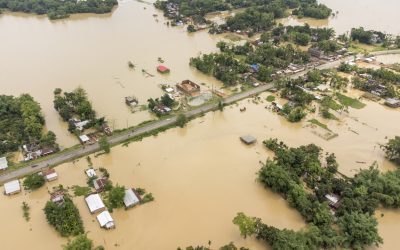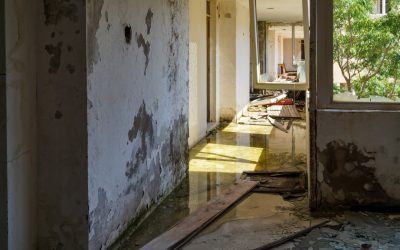Top 10 Reasons for a USAA Denied Water Damage Claim Explained
Filing an insurance claim after water damage should bring relief, not frustration. Unfortunately, many USAA policyholders face a denied water damage claim when they need coverage most. If your USAA denied water damage claim, you’re not alone—denials often happen due to policy exclusions, missed deadlines, or documentation issues. Understanding why claims get denied is the first step in preparing a strong case and preventing costly mistakes. This guide breaks down the top 10 reasons for water damage claim denials, explains what they mean for you, and shares practical tips on how to handle them.
Why USAA Denies Water Damage Claims
Water damage can stem from a range of incidents—burst pipes, roof leaks, appliance malfunctions, or flooding. USAA, like most insurers, investigates each case against your policy terms before approving or rejecting your claim. Common denials usually trace back to exclusions, maintenance issues, or technical errors in filing. Let’s explore the most frequent reasons in detail.
1. Gradual Damage vs. Sudden Damage
Most insurance policies, including USAA’s, only cover water damage that happens suddenly and accidentally. If the damage occurred over time, such as a slow leak behind walls, it may be considered a maintenance issue rather than a covered event.
For example, a burst pipe that floods your living room overnight is sudden damage. A pipe that’s been leaking for months, rotting wood, and molding drywall is gradual—and typically excluded from coverage.
2. Lack of Proper Maintenance
If USAA determines your water damage resulted from poor upkeep, they may deny your claim. Examples include failing to repair a known roof leak, not replacing worn-out plumbing, or ignoring appliance issues. Insurers expect homeowners to take reasonable steps to maintain their property, and neglect can be used as a reason for denial.
3. Flooding Exclusions
Many homeowners are shocked to learn that standard insurance policies—including USAA’s—do not cover flooding from natural disasters like hurricanes, heavy rain, or rising rivers. Flood coverage must be purchased separately through the National Flood Insurance Program (NFIP) or private insurers. If your water damage was caused by floodwaters, your USAA claim will almost certainly be denied. Learn more from FEMA’s NFIP resources.
4. Mold Damage After Water Leaks
Mold often develops after water intrusion, but it is usually excluded or capped under most insurance policies. If mold formed because the water damage wasn’t addressed quickly enough, USAA may deny or limit your claim payout. Some policies include limited mold coverage, but it typically won’t cover full remediation.
5. Late Claim Filing
Timing is critical when filing a water damage claim. If you delay reporting the incident, USAA may deny the claim, arguing that the damage worsened because you didn’t act promptly. Most policies require “prompt notice,” which means you should file as soon as possible—even while repairs are ongoing.
6. Insufficient Documentation
Water damage claims require strong documentation: photos, videos, repair receipts, and a detailed list of damaged property. Without this, USAA may argue there isn’t enough proof to support your claim. Always document damage immediately, before cleanup or repairs, to strengthen your case.
7. Policy Exclusions Hidden in the Fine Print
Every policy has exclusions—events and types of damage the insurer won’t cover. Common exclusions include groundwater seepage, sewer backups, or water entering through windows during storms. If your loss falls under one of these, USAA may deny your claim, even if the damage feels unexpected to you. Carefully reviewing your policy’s exclusions can help you avoid surprises.
8. Pre-Existing Damage
If your property already had water damage before the incident you’re claiming, USAA may deny coverage. Insurers may send adjusters or specialists to determine whether the damage is new or pre-existing. For example, long-standing stains on ceilings may be classified as old damage, not linked to your current claim.
9. Misrepresentation or Errors in the Claim
Any inaccuracies in your claim—whether intentional or accidental—can lead to denial. This includes overstating the extent of damage, misreporting the cause, or leaving out key details. USAA investigates claims carefully, and inconsistencies may cause them to question the validity of your entire submission.
10. Damage Outside Coverage Limits
Even if your water damage is covered, your claim may be denied or reduced if costs exceed your policy’s limits. For example, if your coverage caps water damage repair at $10,000 but your expenses total $20,000, USAA will only reimburse up to your limit. Always review your policy’s coverage caps before filing.
What To Do If Your USAA Water Damage Claim Is Denied
A denial doesn’t always mean the end of your claim. You have the right to appeal and provide additional evidence. Here are steps to take if you receive a denial:
- Review your denial letter carefully to understand the reason.
- Compare it against your policy wording to check for discrepancies.
- Collect more documentation—photos, contractor reports, expert opinions.
- File an appeal with USAA in writing, addressing the specific reason for denial.
- Consider hiring a licensed public adjuster or attorney who specializes in water damage claims.
The Insurance Information Institute provides consumer guidance on navigating claim denials.
When to Seek Professional Help
Fighting a denied claim alone can be overwhelming, especially if large repair costs are on the line. Many homeowners turn to licensed public adjusters, who work on your behalf to negotiate with insurance companies. These experts understand policy language, documentation requirements, and negotiation strategies that increase your chances of overturning a denial.
FAQs on USAA Denied Water Damage Claims
Q1: Why did USAA deny my water damage claim?
A: Denials usually occur due to policy exclusions, gradual damage, lack of maintenance, or insufficient documentation. Always review your denial letter for the specific reason.
Q2: Can I appeal a denied water damage claim with USAA?
A: Yes, you can appeal by submitting additional evidence and documentation. Many homeowners strengthen their case with help from a public adjuster or attorney.
Q3: Does USAA cover flood-related water damage?
A: No, standard USAA policies exclude flood damage. You need separate flood insurance through NFIP or a private insurer.
Q4: How long do I have to file a water damage claim with USAA?
A: You should report damage immediately. Delays can lead to denial, especially if the insurer believes late filing worsened the loss.
Q5: Will USAA cover mold from water damage?
A: Coverage for mold is usually limited or excluded. If mold formed due to delayed reporting or cleanup, your claim is more likely to be denied.
Q6: Should I hire a public adjuster for a denied claim?
A: If the damage is significant or the denial feels unfair, hiring a public adjuster can help you navigate the appeals process and maximize your settlement.
Call to Action
If your USAA denied water damage claim, don’t give up. Many denials can be overturned with the right strategy, evidence, and professional support. Explore more insights on Why Would a Water Damage Claim Be Denied by Insurance Companies? and get expert assistance for Water Damage Claims. The team at Care Public Adjusters can help you fight back against unfair denials and recover the coverage you deserve.



